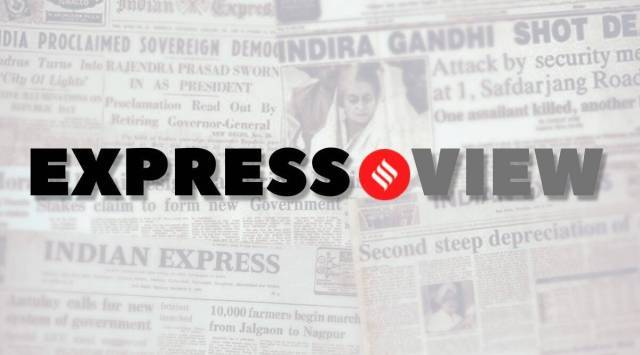
Among the main objectives of the Pradhan Mantri Krishi Sinchayee Yojana is to increase the efficiency of water use, facilitate the adoption of new water saving technologies, and expand the area under assured irrigation.
While there has been progress towards achieving these objectives, an investigation by this paper has revealed that Aadhaar cards were being misused in Jharkhand to create fake beneficiaries to avail benefits under the scheme.
Of the 94 farmers in the three blocks of Chouparan, Churchu and Ichak in the state, all of whom were beneficiaries as per the state government, the investigation has revealed that only 17 were actually using drip irrigation. While roughly two-thirds of the beneficiaries said that they were deceived into signing up for the scheme, 18 per cent said they had no knowledge of how they made it on the list of beneficiaries. These are disturbing revelations.
To ensure proper implementation on the ground, the scheme entailed a four-step verification process. However, as the investigation has revealed, middlemen acting on behalf of companies have manipulated the process, enrolling fake beneficiaries.
In some cases, the beneficiary does not have the equipment, while in others he is not even a farmer. This, unfortunately, is not a one-off instance. While it has helped tackle the problems of exclusion and inclusion, weed out fake and ghost beneficiaries, and eliminate middlemen, some earlier reports have also pointed towards the misuse of Aadhaar, in part due to issues of access and connectivity in the rural hinterlands, digital illiteracy, and lack of awareness.
Aadhaar lies at the centre of the transition from a leaky public service delivery system, marred by inefficiency and corruption, to a more efficient system. It has led to money flowing directly into the hands of beneficiaries, and has translated to fiscal savings. Based on government data, the IMF has estimated the savings from DBT and other reforms at around 1.14 per cent of GDP, largely due to the “elimination of duplicate, non-existent and ineligible beneficiaries”. However, gaps exist in the public delivery frameworks in the country. Governments must ensure that the processes are streamlined, and the gaps are plugged to prevent misuse. The Hemant Soren government has its task cut out for it.